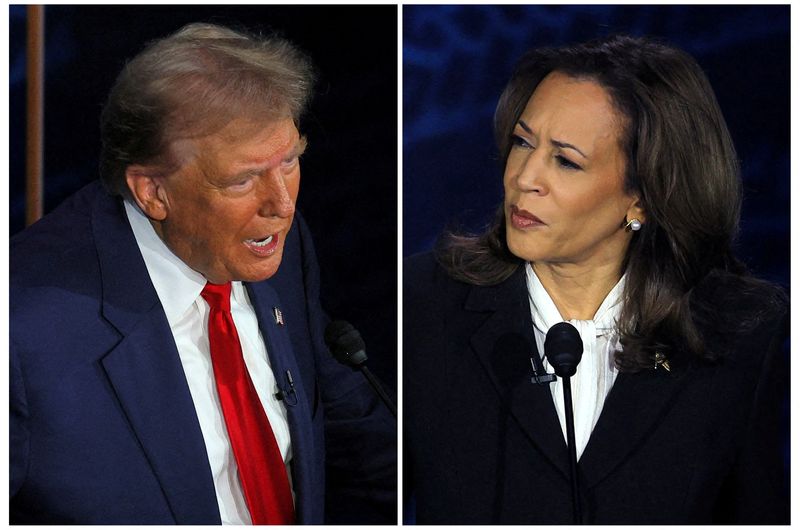Investing.com — A victory for Donald Trump and Republican control of Congress, a so-called red wave, would likely lead to higher Treasury yields, turning the Federal Reserve hawkish and lifting energy and finance stocks, whereas a Kamala Harris win would keep 10-year yields hovering around 4% and extend the AI-driven rally in stocks.
“We think that a Trump victory, particularly if accompanied by Republican control of Congress, would probably result in a fiscal expansion and looser financial regulation,” Capital Economics said in a Monday note, adding that this scenario “could push up Treasury yields and give a short-term boost to US equities.”
A Trump win could see 10-year Treasury yields rise to around 4.5-5% by the end of 2025, driven by expectations of larger budget deficits and a more hawkish Fed, Capital Economics added.
A more hawkish Fed won’t immediately mark the end of the bull run for stocks, however, as Trump’s expected policy measures, including fiscal expansion and deregulation, could provide a temporary boost to US stocks, particularly benefiting sectors such as energy and finance.
Conversely, a victory for Kamala Harris would likely result in a continuation of current policies under President Joe Biden’s regime, Capital Economics suggests, with 10-year Treasury yields expected to remain around 4%. Avoiding a spike in Treasury yields would help extend the AI-driven rally in stocks, as Harris is seen as more likely to maintain the status quo in terms of fiscal and monetary policy.
A Trump victory would likely strengthen the dollar by 5-10% by next year, Capital Economics says, but those gains could be limited as concerns about fiscal sustainability could weigh on the currency.
But bets on the implications for markets could be undone should a Trump presidency result in a full-blown trade war, particularly with China. For Harris, meanwhile, the main risk includes the potential for more progressive policies if Democrats gain control of both houses of Congress.
With just days to go until the Nov. 5 U.S. election, current polls suggest Trump holds a slender lead over Harris. Ultimately, the impact of a Harris or Trump win on markets in the days after the election “will depend on the extend to which different outcomes are already discounted…” Capital Economics added.

